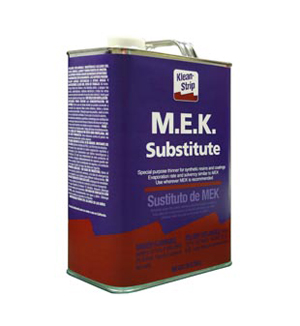
pdb - 15-7-2016 at 02:53
I have to prepare some plastique, from a crop of PETN. However it is not flour-like, but rather crystalline lumps, easy to reduce to flour grade by
light crushing.
As I doubt it exists easily accessible information about sensitivity of PETN soaked in other liquids than water, I would like to get the opinion of
well seasoned pyros like Rosco, Vulture, Polverone, PHILOU, quicksilver, etc. :
Do you think it is more dangerous to crush such crystals in gasoline for instance than in water ? In other terms, is the phlegmatisation effect (of
physical nature) obtained with water met –with possibly a different efficiency– with other liquids of similar fluidity ?
Thank you for your input.
hissingnoise - 15-7-2016 at 03:03
It's always better to err on the side of safety and wet-grind with water ...
BTW, what binder will you use?
pdb - 15-7-2016 at 05:56
@hissingnoise : 12% of 50/50 PIB from self-amalgaming tape and oil SAE 10W. My trials with sebacate led to nothing...
hissingnoise - 15-7-2016 at 06:41
Have a look at Uncle Fester's favourite plastique from Stettbacher!
Stronger than C4 ...
pdb - 15-7-2016 at 06:50
No, I want a product storable for years, which eliminates all gels containing NG and the like.
Praxichys - 15-7-2016 at 06:50
Definitely use water.
Gasoline is a poor choice because it not only contains hydrocarbons but lots of detergents, oxygenates, ethanol, and other additives that will at best
contaminate and at worst react with your PETN, or potentially dissolve a good portion of it.
Most nonpolar solvents are a bad choice because their densities, surface tensions, and viscosities are less than that of water, which leads to more of
the powder resting on the bottom of the grinding vessel, presenting a greater risk of mass-detonation.
I have been successful with an old blender and LOTS of water. Use about 1L of water per 15g PETN, blend gently until crushed, run through filter, and
reuse the water for the next batch to mitigate solubility losses. If you want it to dry faster, spread the filter cake on a glass pan over a hot water
bath and it will take an hour at most for 30 or 40g.
Remember to wear your safety gear. A detonation in the blender will likely be a partial detonation, but there will still be flying glass. It's best to
modify the blender to turn on when plugged in, and plug it in remotely with a long cord, outside. Load it, walk away, plug it on for 30 seconds,
unplug, then approach.
pdb - 15-7-2016 at 11:27
Gasoline is a generic name I used because I don't know the exact translation in your country of what I use in mine. Maybe the term "white gasoline" is
closer. Anyhow, it doesn't contain any additives nor it dissolves PETN.
Regarding the blender, I will never waste my time using this process when, instead, I just have to redissolve my crop in acretone to obtain the flour
grade.
Please let's stick to the initial question...
NeonPulse - 15-7-2016 at 19:52
The blender method is not a waste of time at all. You will lose density in the final product if you simply crash the PETN/Acetone into water. I have
used the blender method quoted above to good effect. Ensure to have AT LEAST 10 times the water volume to PETN and feed it in a it at a time. I have
used both ethyl acetate and toluene a as recrystallising solvents to achieve a good density for how fine it was.
Bert - 16-7-2016 at 09:01
Could you speak more on personal experiences in the use of ethyl acetate as a recrystallization solvent for PETN, particularly the resulting crystal
form and apparent density? Technical grade ethyl acetate was available from painting supply stores in the USA as "MEK replacer" until quite recently.
PETN solubility in ethyl acetate vs. temperature data would also be of interest.
http://www.kleanstrip.com/product/m.e.k.-substitute
CAS # Hazardous Components (Chemical Name)
3. COMPOSITION/INFORMATION ON INGREDIENTS
Concentration RTECS #
141-78-6 Acetic acid, ethyl ester {Ethyl acetate} 100.0 % AH5425000

